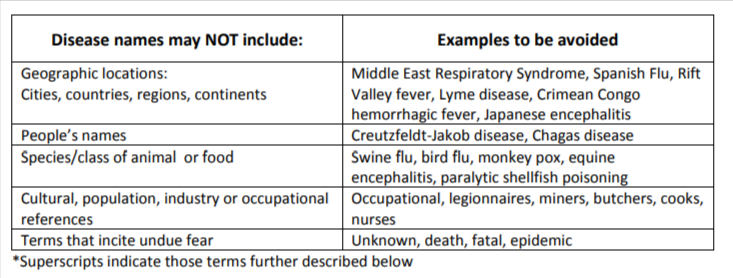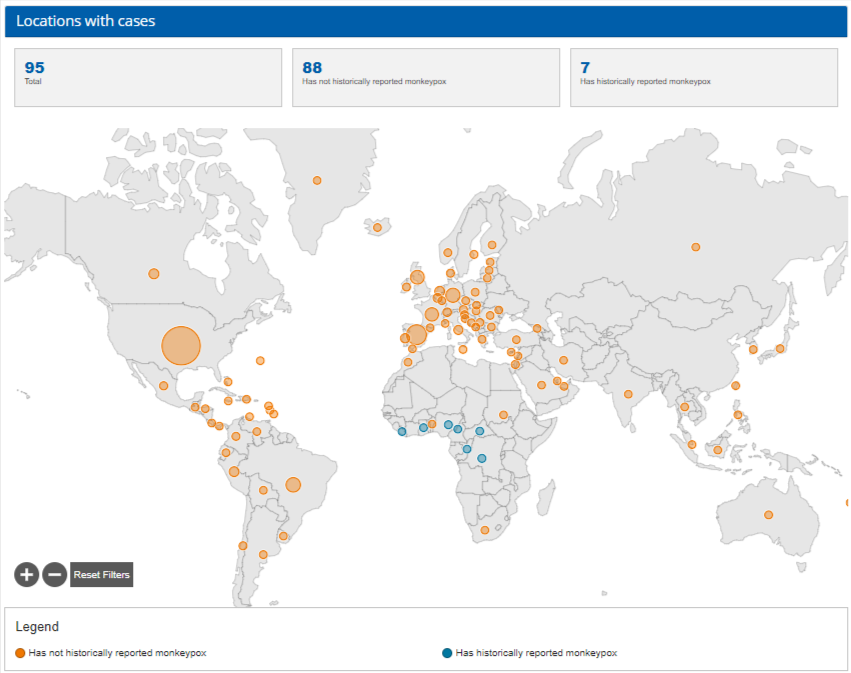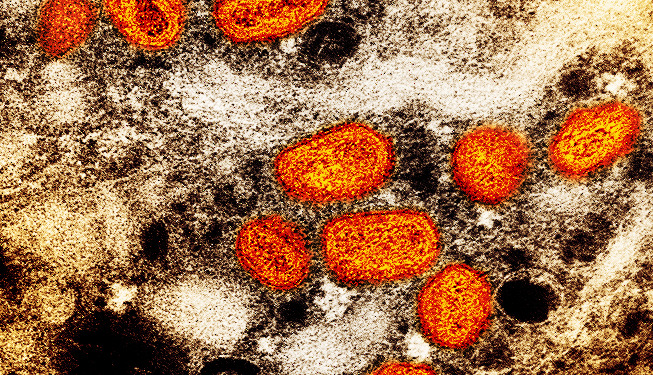The World Health Organisation (WHO) has asked for help from the public in coming up with a less stigmatising name for the monkeypox virus. The organisation has made an online portal for the public to submit their ideas.
“WHO is holding an open consultation for a new disease name for monkeypox. Anyone wishing to propose new names can do so,” the organisation said in a statement.
WHO created a system in 2015 for naming new diseases. The advice includes a list of prohibitions (see table below); “Don’t name a new disease after a person, place and/or an animal” is one of them.

On Aug. 8, 2022, the WHO gathered a panel of international specialists and made a decision to relabel the two predominant monkeypox variants. This concern has been put forward by The UN Health Agency since May 2022, claiming that efforts to restrict its spread will be undermined by the stigma and racial connotations it carries.
For instance, incidences of people attacking monkeys out of fear of the disease have recently been documented in Brazil.
For the first time in May 2022, multiple cases of monkeypox were identified in several non-endemic countries. The outbreak has grown to over 37,000 people globally and has claimed five lives in locations that have not historically been associated with the disease, such as the US, which is now recording the highest number of cases.
The virus is also disproportionately affecting men who have sexual relations with men and spreads through close contact.

The Monkeypox Virus
The monkeypox virus was first discovered in monkeys in 1958 before best practices for naming diseases and viruses were adopted, said the WHO in a statement. The disease is found in many animal hosts including a range of rodents and non-human primates.
The first case of human monkeypox was discovered in the Democratic Republic of the Congo in 1970. Since then, it has spread mostly among people in Central and West Africa, frequently close to tropical rainforests, and has been showing up more frequently in urban settings.
Monkeypox virus is an enveloped double-stranded DNA virus that belongs to the Orthopoxvirus genus of the Poxviridae family. Various animal species have been identified as susceptible to monkeypox virus. This includes rope squirrels, tree squirrels, Gambian pouched rats, dormice, non-human primates and other species.
Monkeypox clade names – The Congo Basin and West African clades are the recognised clades. The former has a 10% mortality rate and has generally been linked to more critical diseases. The latter, which is to blame for the present global outbreak, results in a milder illness with an estimated 1-3% death rate in the African nations where it is endemic.
Related Articles: Is One Health at a Turning Point? | ‘Still so Many Unknowns’: An Unprecedented Outbreak of Monkeypox
Tedros Adhanom Ghebreyesus, WHO Director-General, said his agency, while working with experts to rename the disease, virus and variants, has agreed to name the clades using Roman numerals for now (Clade I and Clade II). Despite this, nothing has been officially reported for over two months.
The International Committee on Taxonomy of Viruses (ICTV) is also taking on the responsibility of renaming the virus species and is now overhauling all of the virus names to bring them into line with the official names of other living forms.
For instance, Escherichia coli is one of the binomial names for bacteria (E. Coli). Before being finalised by next June — the timeframe set by the ICTV for this work — the potential names will be sent to the poxvirus scientific community for review during the next couple of months.
Specialists in virology are not the only ones coming up with alternatives to the current name, many people in various medical and non-medical fields have chimed in their opinions online on Twitter about what the name could be changed to (as shown in post below).
OPOXID-22 is what a bunch of us are calling monkeypox while the @WHO decides to rename it OPOXID-22.
Yes, it’s dry, technical, and lacks stigma. That’s the point. pic.twitter.com/duJnN6vAW1
— Jeremy Faust MD MS (ER physician) (@jeremyfaust) August 12, 2022
In addition, many people have commented that the disease has existed since the 1970s and should not include the year 2022 as it is arguably it is the first time the disease has spread far beyond endemic countries.
“Changing a name overnight doesn’t happen,” said Rosamund Lewis, WHO’s technical head for Monkeypox, in a recent interview.
Even if organisations come up with alternatives to the current name, they must take into account how those names would sound and what they would mean when translated into other languages and cultures, which may have different connotations. This process of renaming a disease is quite challenging and will take a lot of time. Many experts suggested “Monopox” but “mono/mona” translates to “monkey” in Spanish.
The COVID-19 epidemic, which former US President Donald Trump has referred to as the “China virus” and “Wuhan virus,” is the backdrop of the renaming effort. The Asian population may be stigmatised by the usage of that word, according to WHO experts. In order to minimise xenophobia and potential stigmatisation of other marginalised people, the WHO needs everyone’s help to rename the monkeypox virus. However, it appears that the procedure is more difficult than anticipated.
Editor’s Note: The opinions expressed here by the authors are their own, not those of Impakter.com — In the Featured Photo: Monkeypox particles (orange) detected inside an infected cell (brown) in a colourized transmission electron. Featured Photo Credit: NIAID Integrated Research Facility (IRF).










